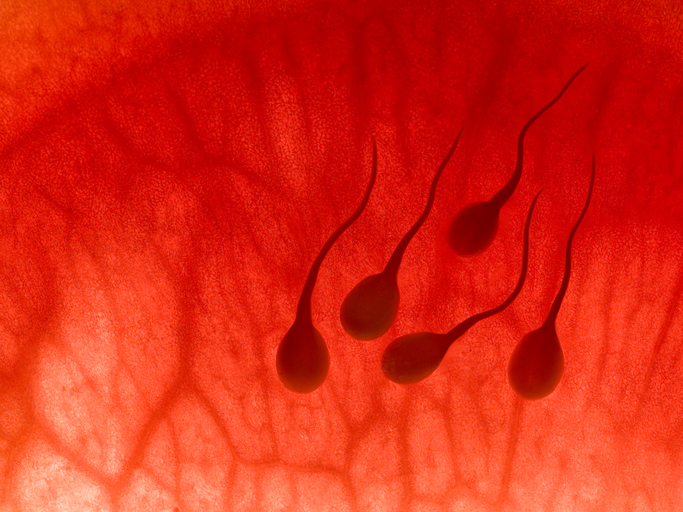A study in Susan Strome’s laboratory at the University of Santa Cruz demonstrates the importance of epigenetic information conveyed by sperm cells, and attempts to explain how this information is transmitted to descendants. Published in Nature Communications, these findings were obtained using research on a roundworm called Caernorhabditis elegans.
It has already been shown that a father’s experiences such as diet or stress can influence the health and development of his descendants through epigenetics[1]. How these effects are transmitted, however, remains mysterious. Susan Strome’s team has shown that marks on chromosomes affecting gene expression, called “epigenetic marks”, are transmitted from parents to offspring, in what is known as “transgenerational epigenetic inheritance”. The researchers also showed that this epigenetic information is necessary and sufficient to guide proper development of germ cells in the offspring.
In the C elegans worm, the sperm retains all the epigenetic marks and transmits them to offspring. Focusing on a particular mark, the researchers found that removing this mark made the offspring sterile. On the other hand, descendants that inherited only sperm chromosomes were fertile, which shows that these marks are sufficient for normal germline development.
[1] “Epigenetic changes do not alter the DNA sequences of genes, but instead involve chemical modifications to either the DNA itself or the histone proteins with which DNA is packaged in the chromosomes. These modifications influence gene expression, turning genes on or off in different cells and at different stages of development”.
Tomoko M. Tabuchi et al, Caenorhabditis elegans sperm carry a histone-based epigenetic memory of both spermatogenesis and oogenesis, Nature Communications (2018)
Phys.org (17/10/2018)

